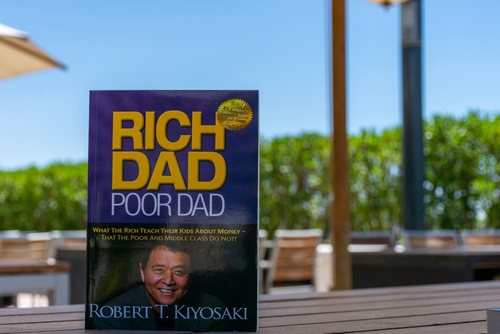Financial “expert” Robert Kiyosaki, famed author of Rich Dad Poor Dad, recently called the 401(k) a horrible retirement plan, trotting out the same old tired tropes in what appeared to be a calculated effort to get attention rather than any attempt at a reasoned argument.
Out-of-context comments and flat-out falsehoods made the piece especially dangerous coming from someone billed as an authority on the subject.
Admitting that 401(k) is the most popular retirement plan, he flagged a few “key issues,” including:
High Fees and Low Control
“The unfortunate truth is that 401(k) plans come with high management fees. This eats into your earnings in the long run. These fees are oftentimes hidden among legal jargon.”
Truth? No.
Unless you’re living under a rock, you know fee compression is a constant (and concerning) issue for financial professionals attempting to provide guidance and an affordable quality of life in retirement for American workers.
Total costs (once again) declined for both large and small retirement plans last year, part of a decade-long trend. Investment fees led the decline, according to the 401k Averages Book.
It found that total investment costs fell between 0.02%-0.05% from 2021, with the average representing a decrease of 0.03%. Large retirement plan fees fell from 0.88% to 0.85% and are down from 0.95% in 2017. Small retirement plan fees declined from 1.12% to 1.09% and are down from 1.18% in 2017.
“The benefits of the trend in lower investment fees will pay significant dividends to participant balances in the long run,” wrote 401k Averages Book author, Joseph W. Valletta.
And depending on the plan’s design, the plan itself, not the participant, often pays the administrative fees.
Limited Control
“Additionally, you have limited control over your money when it is invested in a 401(k). It isn’t directly managed by you, and you are limited to what you can invest in,” the piece argued.
Limited control means professional money management, which—given America’s dismal savings rates and what we’ve learned about behavioral economics—isn’t a bad thing.
“You also do not have immediate access to your money without paying fees. There is also no insurance on 401(k) plans, meaning your retirement account is toast in the event of a market crash.”
Yes, you don’t have immediate access to your money because it’s a long-term saving vehicle. And your account is only “toast” in the event of a market crash if you sell. The Dow hit a low of 6,470 in the wake of 2008 and resides at 36,000 today.
Tax Disadvantages
“Another issue surrounding 401(k) plans comes down to taxes.”
Well, yes, taxes will eventually be paid, but these are literally tax-advantaged accounts, able to be invested pre-tax and grow tax-deferred. These are all obvious points easily swatted away.
The article concluded with an inexplicable attack on, of all things, the employer match and vesting schedules.
It's a lazy and ill-informed piece. Trying to educate the public on the long-term benefits of retirement saving is difficult enough without irresponsible click-bait like this.

